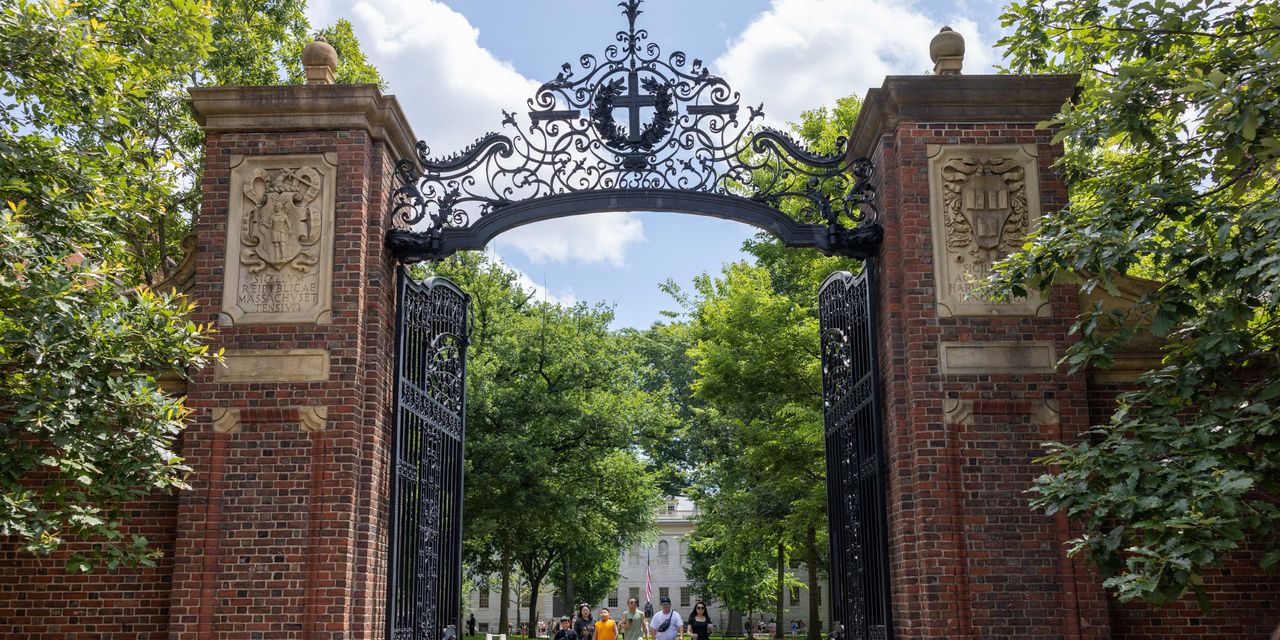Elite colleges and universities give admissions preference to wealthy students, new research has found, and while reforms could promote socioeconomic diversity on elite campuses, experts say that is easier said than done.
“There are a handful of 12 college presidents … who I think by themselves could have quite a significant impact on the diversity of the American elite by changing these admissions practices,” Raj Chetty, a co-author of the paper, said at a panel hosted by the Brookings Institution on Wednesday. The paper was put out by Opportunity Insights, a group of researchers and analysts based at Harvard University.
The reaction to the Supreme Court decision last month striking down affirmative action shows that these institutions have a “genuine interest in diversity,” Chetty added, but the question is how to achieve it.
Leaders of colleges and universities met with President Joe Biden on Wednesday to discuss how to maintain diversity without considering race in admissions decisions.
Read: Supreme Court rules against affirmative action at universities
Read: Inside the room where Biden administration officials and college leaders game-planned college admissions after affirmative action
Most institutional efforts to promote economic diversity have “tended to focus on measures like students getting Pell Grants and [on] students from lower parts of the income distribution,” Chetty said. While both of those are important, he said, “what … we’ve ignored a little bit is the middle class and the upper middle class.”
Relative attendance rates at elite schools for students from those groups are the lowest, according to the research.
Reforming the admissions process — by halting legacy admissions, athletic recruiting and a preference for non-academic achievement, among other strategies — could add an average of 144 students from families in the bottom 95% of household earnings to the student body at elite colleges, according to the paper. The researchers found that colleges place added importance on things like leadership, extracurricular activities and personality traits, ratings for which tend to be higher for students from private high schools with affluent student bodies.
Read: As Supreme Court strikes down affirmative action, the push to end legacy admissions may gain momentum
Carolyn “Biddy” Martin, a former president of Amherst College who oversaw the end of legacy admissions at the institution, agreed with the researchers, but she said that tradition and money often prevent administrators from making those kinds of changes.
Tradition is “notoriously hard to get rid of,” she said. Martin described universities as sites of intergenerational community building and noted that “there are alumni communities accustomed to certain traditions and culture of a place … and some of what one fears that will go missing [with admissions reforms] is the support of intergenerational community.”
Martin also said that institutions that provide large amounts of financial aid to lower-income students rely on tuition from high-income students to balance their budgets.
“It will take money” to overcome the trend that favors admission for wealthy students, she said.
The researchers found that students from families in the top 1% of household earnings are twice as likely to attend an Ivy League college or the Massachusetts Institute of Technology, the University of Chicago, Stanford University or Duke University as students from families lower down on the income-distribution scale.
Read: If you’re part of the 1%, you’re twice as likely to attend an elite college, new research finds
Attending one of these elite colleges “increases students’ chances of reaching the top 1% of the earnings distribution by 60%, nearly doubles their chances of attending an elite graduate school and triples their chances of working at a prestigious firm,” the researchers said.
Read the full article here




